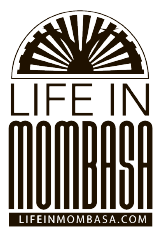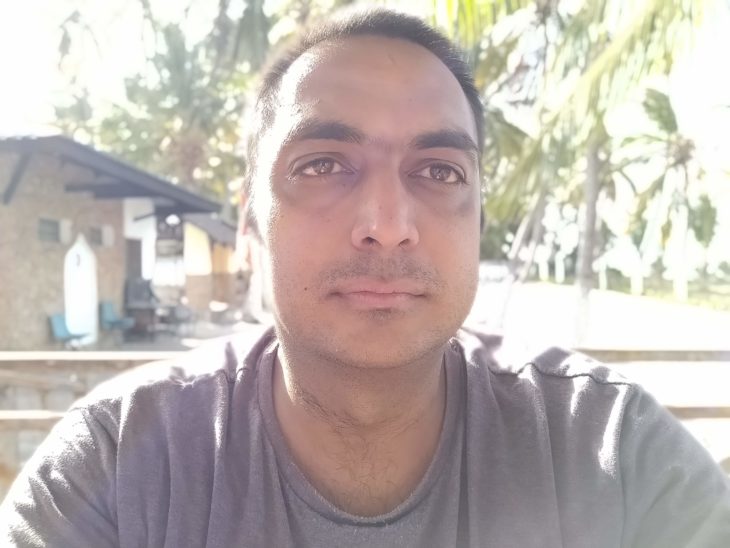Your name and what do you do?
My name is Rahim M Kara. I am a content creator with a focus on Photo and Video as a medium of my content creation under my company Megapixels production.
Why photography?
Photography is a form of expression for me. A way in which I tell stories that I feel are important. I began my life in photography as a child when I used to play with my father’s camera and even since then, I can recall a fondness for working with the medium. It wasn’t too difficult turning my passion in to a career when I had the opportunity to begin working full time as a photographer.
What other skills do you have?
Apart from Photography, my career path led me to Counselling Psychology which I practice voluntarily however apart from Photography, I have a skill set in Computer Networking, Hardware, Web Development, Web Design, Graphic Design and I am an Adobe, Apple and Phase One Certified Professional.
You have been in the industry for so long, what are the changes you have seen in the photography industry in Mombasa?
With the advent of digital photography, I’ve seen a shift in the industry in our region of the country. There have been more and more photographers shifting to digital as a medium and there are still photographers shooting on film. So it’s a two sided edge at the moment.
Mombasa as an industry for Photography is interesting compared to a lot of other places. Unfortunately, for the moment the ethos in Mombasa is an individual centric mentality which has stopped the growth of the community in the area. Instead, there are individuals who are mushrooming in various areas and are growing but only to a certain limit before they themselves are forced to either concede and get a 9-5 job to supplement their income or become “glorified paparazzi”.
This is a mindset that we have as creatives in Mombasa unfortunately that is causing us to remain small as an industry as it causes more harm in the long run to the younger photographers / newer photographers who instead of seeing what should be a thriving industry, end up finding more failures and are immediately discouraged from taking it on as a career path.
What are the challenges you have faced?
Over the past 18 years, a lot has happened with respect to building and sustaining my career in photography / cinematography. We began in the time of film photography and 8mm DV Cam tapes so the first challenge at that time was investments. We had to work consistently and continuously for at least 2 years with our old equipment before we were able to invest in what we thought at the time was good and newer equipment. Without the internet though, we didn’t really have a gauge to meter what we were buying compared to what was available in the market at the time. It was more reliance on local vendors. So for at least 5 years, we worked on upgrading our equipment and had to keep up with the trends when the internet came to it’s near fruition with 2G data on our phones. By 2004, we felt we were in a good place to start with our first digital camera to test what the systems have and can bring to the table, it was a Fuji Finepix 2MP camera and we loved it. After that, we purchased our first DSLR which we still own. It was a Canon EOS 400D an 8mp camera. Weddings were suddenly more than just 4 rolls of film, a 4GB card could let us make mistakes and get some amazing photographs while at it.
I think there were only 4 photographers at the time shooting weddings on digital and that made the world of difference to some clients. Receiving a DVD instead of a printed set of photos from which to choose and make your own printouts was just a wonder for them.
We grew as expected and by 2009, we had 2x5D Mark ii cameras, a 1D Mark ii N, 50D, 350D, 400D, a hasselblad, 2 large broncolor lights and a plethora of other items in our kit that made us “Invincible” or so we thought.
Pride comes before a fall. A saying I now hold very dear to me. In 2010, we were robbed and lost almost 3 Million worth of equipment by my estimate.
Since then though, we’ve bought only what’s necessary and only when we need to. Till then, we’ll work with what we have and it’s been nice working on what we’ve got because that taught us our equipment’s worth.
A lot has happened within these 18 years that can be spoken about but one of the most challenging times was building up from losing all the primary equipment we owned.
Nowadays almost everyone has access to devices with which it is possible to take pictures. What do you think is the difference between a professional photographer and any other hobby photographer?
I’d like to believe that the term “Professional photographer” initially sets apart the hobbyists by the first point of note being their getting paid to do a job. While that isn’t the most defining trait, it is an important one. Hobbyists too get paid for what they do sometimes, and I don’t want to dismiss them because I know a good number of photographers who enjoy the craft as a part time / retreat from their 9-5 day jobs and are honestly very good at photography but choose to leave it as a side hustle. That I believe would probably be a good definition for the difference.
A professional to me is someone that takes the craft very seriously and invests his / her time, energy and day to day to just that craft. They eat, sleep and breathe just that one craft.
And they are the embodiment of the craft.
In Mombasa, we still have an issue of unemployed youth, what are the steps a youth can do to identify and develop a skill that they can generate income from themselves?
This is a loaded question and I don’t think there’s a straight answer to it. In my opinion though, I think there’s room for us as photographers to build our own industry because of this.
As the Mombasa Photographers’ association is now a formalized entity, perhaps the first point of action is an awareness campaign with the county so as to build awareness within the local populous that this can be a way of generating revenue.
If they do want to take this up as a career, it would be amazing. And then we can work on an education path for the members of the community. This builds personal growth as there’s more weddings in Mombasa alone than we as a unit can wave a stick at.
Well trained, well-educated photographers in the craft means that we’ll have more diversity and more work open up for everyone as well as a unified way forward for the community.
What major campaigns have you worked with?
One that was very close to me was a campaign against gender based violence which was a group project that was absorbed by the United Nations as well as the MSF that was one of the largest campaigns. Apart from that, over the past two years I’ve been working quite a bit on campaigns with the Aga Khan Development Network ( AKDN ) who are one of the largest NGO’s in the world and have been extremely active in East Africa for over 4 decades. They are easily identified by the Aga Khan Insignia and incorporate the Aga Khan Hospital, the Academies and one that I personally find most intersting, is the Early Childhood Development Madrasa Program, a project that began almost 37 years ago with the Muslim Ummah in Mombasa. The project was initiated to incorporate a balance between the secular and religious sides of education for Muslim youth in Mombasa initiated in as at the time, Muslim children were being marginalised due to the fact that they had almost no primary schooling.
It is such ideas and projects that increasingly bring me more joy when working with the AKDN
Where do you see yourself ten years from now?
Hopefully teaching. I’d like to be able to share as much information as I can as I believe that is all I can do to help with the industry / youth.
Parting shot.
Photography as a career is tough. Especially in East Africa where the market has not yet matured. It is unfortunate but it is true. I want to get to a point where we as an industry are recognized and are able to bring actual change and development to our region.


